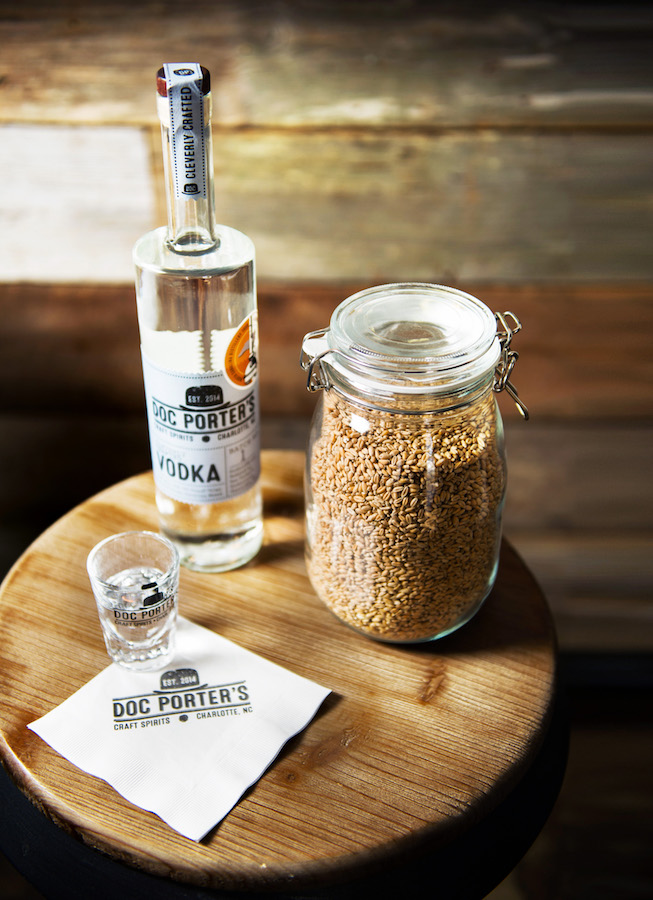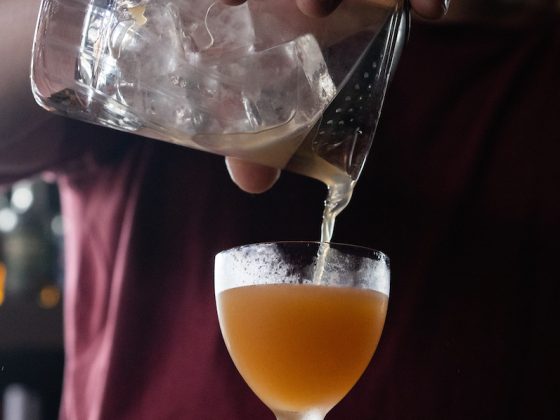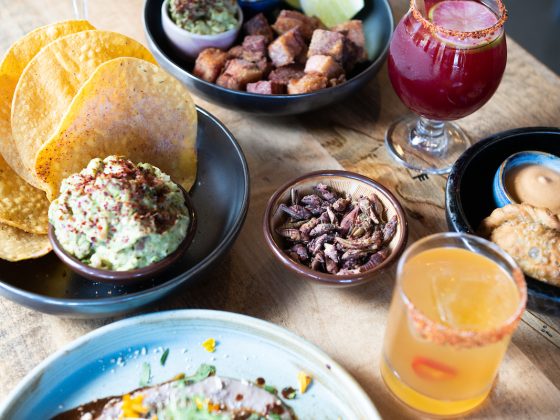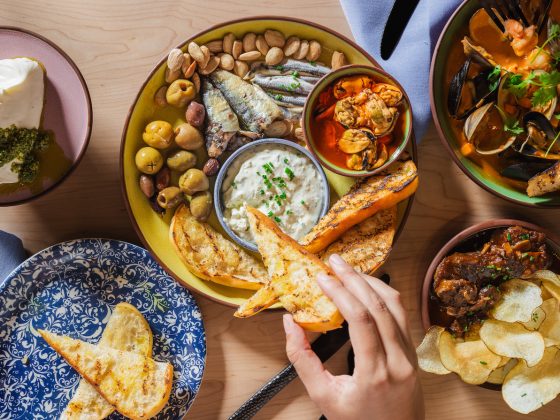In a crowded market, authenticity is a difficult thing to come by and when everything is mass-produced, a high quality, handcrafted product can seem like a thing from a bygone era.
Home grown in a distillery near South End and uptown Charlotte, Doc Porters is the exception – a true craft vodka. Owner and operator Andrew Porter first learned about craft liquors as a chemical engineering major sitting in a distillation class in college. Years later when he met his wife, Liz, the idea to create their own distillery slowly transformed from daydream to reality. Now, two and a half years and many legal processes later, Doc Porters is finally being bottled.
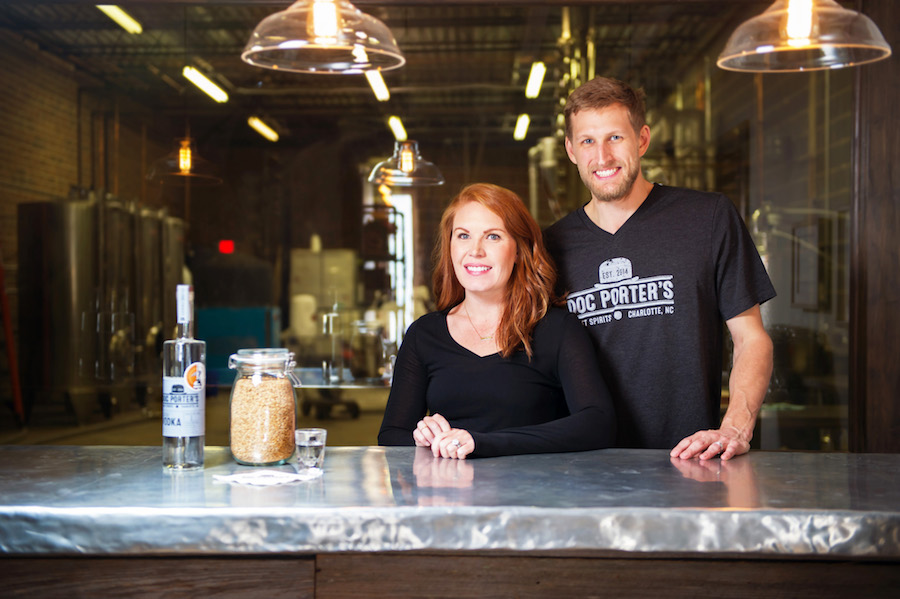
The Porters have had to deal with the many unique complications that come along with opening a craft spirit distillery. Unlike a craft brewery, Doc Portershas to go through a large mix of regulatory processes due to strict ABC laws in place in the Carolinas. In fact, it wasn’t until Andrew and Liz finished all the regulations that they were actually able to create and taste their own vodka for the very first time.
“It was a big risk, having to get a location and pay for the classes and legal processes before ever knowing if we would be allowed to continue,” Andrew says. “But it has been worth it.”
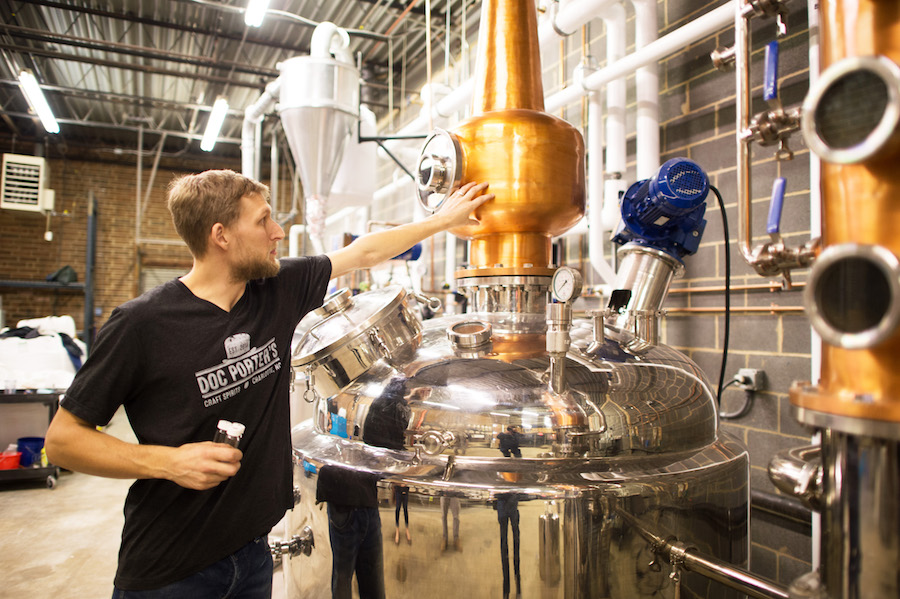
Now, Andrew is finally able to put his chemical engineering degree to use and create the nuanced flavors they are chasing. While Andrew stays busy at work in the back rooms perfecting the science of distilling, Liz focuses her Marketing and PR background on perfecting the business’ image.

Under the slogan, “Cleverly Crafted,” Liz aims to bring a genuine craft feel to the brand. Unlike many modern spirits, Doc Porters is what you call a ‘Grain to Glass’ vodka: every step of the distillation process takes place under one roof. Andrew and Liz get a shipment of wheat from a local farmer and from there they mill, mash, ferment, and finally distill it. In doing each of these steps themselves, the Porters are able to more clearly control flavor, quality, and consistency.
Until very recently, one key difference in running a spirit distillery and a beer brewery is the fact that breweries can sell their product from the location that they produce it. The Porters, along with many other North Carolina distilleries, decided to try to produce change within the government. After months of work, the lobbying proved successful. Active on October 1st of 2015, distilleries are now allowed to sell one bottle per person per year after a tour is given. While this may seem like a small step, it is a huge move forward for distilleries.
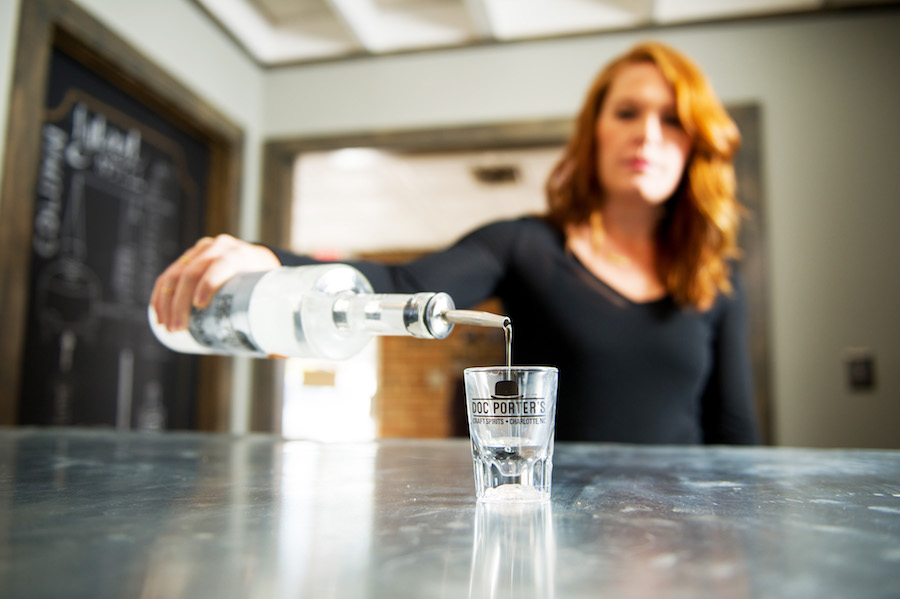
With the success of their vodka, the Porters have also decided to start venturing into other types of spirits, like whiskey and gin. Currently, the whiskey is aging in the warehouse in American oak barrels and the gin is still in the flavor testing process.


